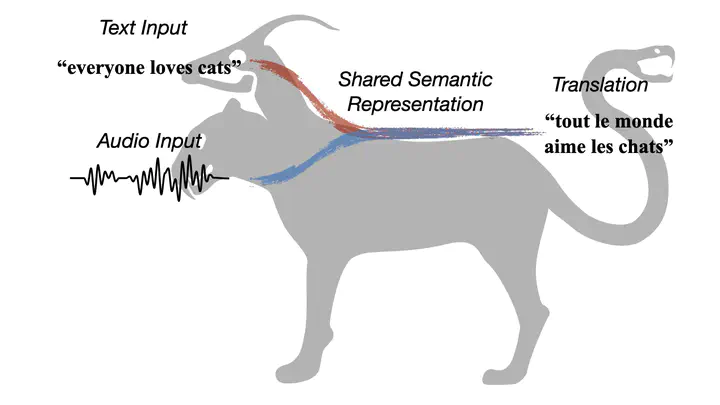
Abstract
Having numerous potential applications and great impact, end-to-end speech translation (ST) has long been treated as an independent task, failing to fully draw strength from the rapid advances of its sibling - text machine translation (MT). With text and audio inputs represented differently, the modality gap has rendered MT data and its end-to-end models incompatible with their ST counterparts. In observation of this obstacle, we propose to bridge this representation gap with Chimera. By projecting audio and text features to a common semantic representation, Chimera unifies MT and ST tasks and boosts the performance on ST benchmarks, MuST-C and Augmented Librispeech, to a new state-of-the-art. Specifically, Chimera obtains 27.1 BLEU on MuST-C EN-DE, improving the SOTA by a +1.9 BLEU margin. Further experimental analyses demonstrate that the shared semantic space indeed conveys common knowledge between these two tasks and thus paves a new way for augmenting training resources across modalities.